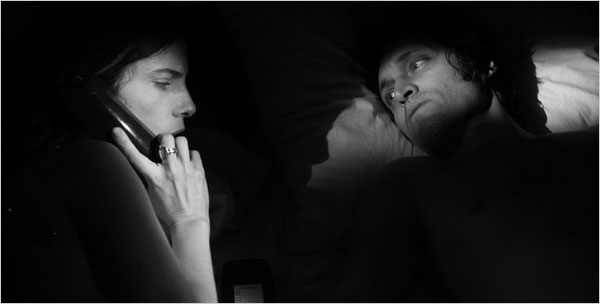|
Reviews of Recent Independent, Foreign, & Documentary Films in Theaters and DVD/Home Video

TETRO
Coppola once said that he was always more interested in writing than directing, yet he was also supremely insecure about his abilities, so it’s no surprise that Tetro is his first original script since The Conversation (1974). And it’s also no surprise that it’s about a writer coming to terms with his talent. The story starts with 17-year-old Bennie (played by newcomer Alden Ehrenreich), who comes to Buenos Aires in search of his older brother Angelo (Vincent Gallo), a disillusioned writer who abandoned the family and now calls himself Tetro (a contraction of the family name). Bennie befriends Tetro’s girlfriend (Maribel Verdú), who senses Bennie is trying to reconnect with Tetro and also might be hiding a secret or two. As we move deeper into the story, we learn about Tetro’s relationship with his talented but psychologically abusive father (Klaus Maria Brandauer), a world-renowned conductor, and also meet a prominent South American critic (Carmen Maura), whose relationship with Tetro acts as a microcosm for the artist-critic dialogue. Tetro represents arguably Coppola’s most intensely personal, consciously reflexive, and visually flamboyant work. The majority of the film is shot in beautiful, high-contrast black-and-white, which Coppola says references the work of Elia Kazan. The streets of Buenos Aires here certainly resemble those of Kazan’s New Orleans in A Streetcar Named Desire (1951). Flashback sequences introduce a sudden burst of color that offers Coppola the chance to reference other influences, most notably Michael Powell and Emeric Pressburger’s underrated The Tales of Hoffman (1951), from which he both reproduces and recreates excerpts of ballet sequences. The plot offers Coppola the opportunity to revisit several themes he’s tackled at various points in his career: familial fidelity (The Godfather, 1972), the inner turmoil of a “genius” (The Conversation), alienated youth (The Outsiders, 1983). But the most obvious kindred spirit is Rumble Fish (1983), which Coppola also shot in black-and-white with some scenes in color and also involved a youth (in this case a street thug played by Matt Dillon) searching for the acceptance and affections of a distant older brother (Mickey Rourke). As the title character, one could hardly imagine a better choice than Vincent Gallo, who wrote, directed, and starred in Buffalo ’66 (1998) and The Brown Bunny (2003)—films which are either daring works of subversion or glorified exercises in masturbation, depending on who you ask (I myself am undecided). Gallo has such a reputation for iconoclasm, moodiness, egocentricity, and passion that he might as well be Tetro. As Bennie, Alden Ehrenreich is passable in his boyish looks and his ability to look callow and naïve, but his voice lacks affect, and his lines often sound like readings. Maribel Verdú, who gave memorable performances in Alfonso Cuarón’s Y Tu Mamá También (2002) and Guillermo del Toro’s Pan’s Labyrinth (2006), is wonderful to watch in her character’s most nurturing and loving moments. And Klaus Maria Brandauer imbues Tetro’s father with the optimal combination of urbane charm and callous narcissism. The
stylistic flourishes of the film are a joy, from the luscious score by
Osvaldo Golijov to a theatrical production of Faust with a
transvestite Mephistopheles. There’s also plenty of hammy dialogue that
one is never quite sure Coppola takes seriously, from glib
pronouncements like “Angie’s dead…My name is Tetro” to Godardian nuggets
of aphorism like “Language is dead.” The plot takes some ill-advised
turns towards its conclusion, resulting in some overwrought
theatricality that falls decidedly flat. But Coppola’s heart is so much
in it that you want to let him off the hook. His willingness to let
loose—to trust the power of the image and play around with the camera,
with staging, with shadows and light—is so endearing and so much fun
that to gripe about anything feels like spoiling a good party.
Rich Zwelling
|

